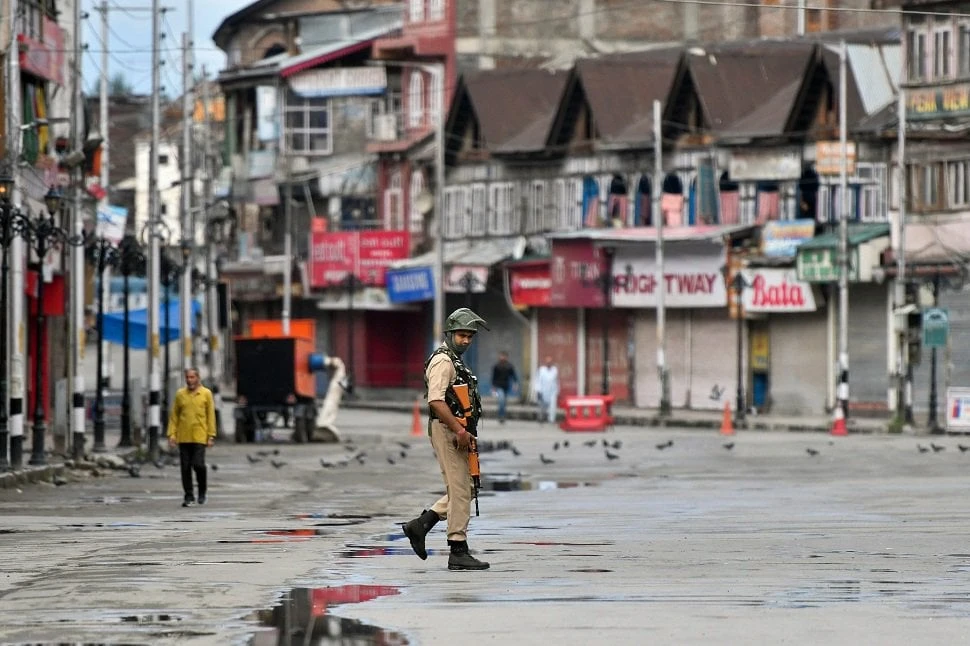Jammu and Kashmir: Indian aggression and global indifference

Stay tuned with 24 News HD Android App

On August 5, 2019, India unilaterally revoked Article 370 of its Constitution, stripping Jammu and Kashmir of its special status. This move has been widely criticized as a blatant violation of United Nations resolutions and a stark demonstration of India's aggressive policies. Over the past five years, the people of Jammu and Kashmir have endured significant hardship and repression, their cries for justice met with deafening silence from the international community.
The revocation of Article 370, which granted Jammu and Kashmir a degree of autonomy, marked a turning point in the region's history. India’s decision was not only a breach of its own constitutional commitments but also a direct affront to several United Nations Security Council resolutions. These resolutions, particularly Resolution 47 of 1948, call for a plebiscite to allow the people of Jammu and Kashmir to determine their own future. By unilaterally altering the status of the region, India has undermined the very foundation of these resolutions, perpetuating a state of perpetual conflict and unrest.
The Indian government justified its actions by claiming it would bring development and integration to Jammu and Kashmir. However, the reality on the ground tells a different story. The revocation was followed by an unprecedented military lockdown, communication blackout, and a severe clampdown on civil liberties. For months, the people of Jammu and Kashmir were cut off from the world, their voices silenced, and their movements restricted. Reports of arbitrary detentions, torture, and extrajudicial killings have become alarmingly common, painting a grim picture of the human rights situation in the region.
The international community's response to these developments has been disappointing. The United Nations, despite its resolutions, has failed to take decisive action. Statements of concern and calls for restraint have done little to alleviate the suffering of the Kashmiri people. The world's major powers, often vocal champions of human rights and democracy, have remained conspicuously silent or, at best, issued tepid condemnations. This selective application of principles raises serious questions about the credibility and effectiveness of international human rights mechanisms.
The role of the United States, often seen as a global leader in promoting democracy and human rights, has been particularly disheartening. Successive administrations have prioritized strategic and economic interests over the human rights of the Kashmiri people. This realpolitik approach has emboldened India to continue its repressive policies without fear of meaningful international repercussions.
Similarly, the European Union, which prides itself on its human rights advocacy, has largely confined its response to diplomatic statements. The EU's reluctance to take a firm stand against India, a key trade partner, highlights the moral compromises often made in the realm of international relations. The lack of substantial action from these global powers not only undermines their own credibility but also emboldens other nations to flout international norms with impunity.
Human rights organizations, too, have faced significant challenges in addressing the crisis in Jammu and Kashmir. The Indian government has restricted access to the region, making it difficult for independent observers to assess and report on the situation. Despite these obstacles, organizations like Amnesty International and Human Rights Watch have documented numerous abuses, calling for accountability and justice. However, their reports have often been met with denials and dismissals from Indian authorities.
The five-year struggle of the people of Jammu and Kashmir is a stark reminder of the limitations of the international human rights framework. While the UN and various human rights organizations play a crucial role in documenting abuses and advocating for justice, their impact is limited without the backing of powerful nations. The ongoing crisis in Jammu and Kashmir underscores the need for a more consistent and principled approach to human rights, one that prioritizes justice and accountability over geopolitical interests.
In conclusion, the revocation of Jammu and Kashmir's special status and the subsequent repression by India represent a grave violation of international law and human rights. The international community's failure to respond effectively has only exacerbated the suffering of the Kashmiri people. It is imperative that the United Nations and global powers reassess their approach, prioritize the rights and aspirations of the Kashmiri people, and take concrete steps to ensure justice and lasting peace in the region.
